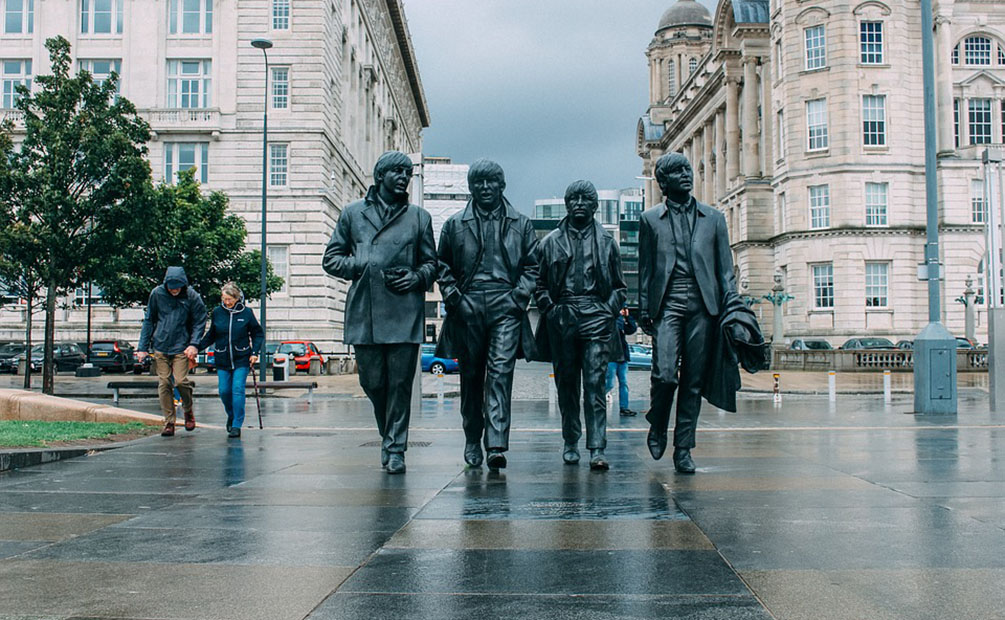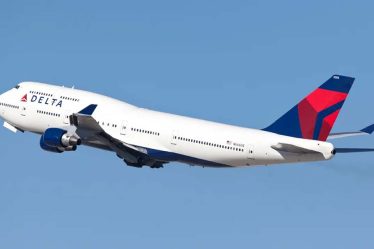
Booking Flights:
1. Comparing One-Way vs. Round-Trip Tickets:
Often, the pricing dynamics in the airline industry make one-way tickets appear cheaper than round-trip options. This occurs due to various factors impacting ticket pricing. Airlines tend to employ complex pricing algorithms influenced by demand, seat availability, and even competitive strategies. Consequently, a one-way ticket might align better with current demand or promotional offerings, resulting in a seemingly lower fare. On the other hand, round-trip fares are designed to offer a package deal, potentially reducing the per-flight cost but requiring commitment to both legs of the journey.
2. Leveraging Free Extended Layovers:
Certain airlines actively promote tourism in their hub cities by allowing passengers to extend layovers at no additional cost. This strategy serves a dual purpose for both the airline and the traveler. Airlines gain by attracting passengers to choose their routes over others, while travelers get a chance to explore another city or destination without bearing the burden of an extra flight cost. Airlines strategically utilize this as a marketing tactic, fostering goodwill among travelers and potentially enticing them to choose their airline again in the future.
3. Considering Longer Layovers:
Choosing longer layovers can significantly impact the overall flight cost. This is primarily because airlines often structure their pricing models based on demand for specific routes and flights. Flights with longer layovers may attract fewer passengers due to the perceived inconvenience of the extended wait time. Consequently, airlines may reduce prices for these flights to make them more appealing. However, it’s crucial to balance cost savings with practicality. While a longer layover might lower expenses, ensuring there’s sufficient time for transit, potential delays, and comfort during the waiting period is essential for a smooth travel experience.
By understanding these intricacies of airline pricing strategies and policies, travelers can make informed decisions when booking flights, optimizing their travel budget without compromising convenience or comfort.
Platforms for Budget Flights:
1. Using Flight Comparison Websites:
Flight comparison websites serve as invaluable tools for travelers seeking the best deals on airfare. These platforms aggregate data from numerous airlines, enabling users to compare prices, flight durations, layovers, and even the class of service across multiple carriers. The rationale behind varying prices among different airlines for the same route stems from their individual pricing strategies, seat availability, and ongoing promotional offers. Flight comparison websites facilitate this comparison process by providing a centralized platform where travelers can efficiently evaluate and select the most economical options based on their preferences and budget. Additionally, these platforms often feature additional functionalities such as fare alerts, price tracking, and flexible date options, further assisting users in finding the most cost-effective flights.
2. Monitoring Airline Promotions:
Airlines frequently introduce promotions and exclusive deals to stimulate demand and attract travelers. Subscribing to airline newsletters or engaging with their social media channels offers travelers direct access to these enticing offers. The primary motivation behind these promotions lies in filling seats during off-peak periods, promoting new routes, or celebrating milestones. Newsletters often serve as a primary communication channel through which airlines inform subscribers about limited-time discounts, promotional codes, or special sales events. Similarly, airlines actively utilize social media platforms to engage with their audience, sharing exclusive deals, contests, and last-minute offers. By staying updated with these channels, travelers can leverage these promotional opportunities to secure discounted fares or value-added benefits for their flights.
3. Flexibility in Travel Dates:
Flight prices are subject to constant fluctuation due to various factors such as seasonal demand, holidays, and even day-to-day market dynamics. Maintaining flexibility with departure and return dates allows travelers to capitalize on these fluctuations and access more affordable fares. Airlines often employ dynamic pricing strategies, adjusting ticket prices based on demand patterns. By being open to adjusting travel dates by a few days or considering alternate departure times, travelers can potentially unlock lower-priced options. This flexibility aligns with airlines’ strategies to optimize seat occupancy and allows passengers to take advantage of price differentials, securing more budget-friendly flight options.

Understanding and leveraging these aspects of the airline industry empower travelers to navigate the market effectively, utilizing available resources and opportunities to secure cost-effective flights tailored to their preferences and travel plans.
Flight Recommendations:
Direct Flights from New York to Liverpool:
Opting for direct flights from New York to Liverpool might appear convenient but can often come with a higher price tag. Airlines typically offer limited direct routes between specific cities due to demand, operational costs, and logistical considerations. The direct flight’s convenience and time-saving aspect often result in a premium fare. However, travelers have a cost-effective alternative: considering flights to nearby cities like Manchester or London, which might offer more flight options at potentially lower prices.
Why Choose Alternative Cities and Transportation:
- Cost Savings: Flights to major hubs like London or Manchester from New York tend to have more competition among airlines. This increased competition can lead to lower base fares due to the availability of multiple carriers vying for passengers. Additionally, these cities have better connectivity, making them more economical entry points to the UK.
- Diverse Flight Options: London and Manchester generally serve as significant international hubs, offering a broader range of flight schedules and carriers. This abundance of choices allows travelers to explore various departure times, airline preferences, and possibly snag promotional fares or discounted options.
- Utilizing Alternate Transportation: From London or Manchester, travelers can easily access Liverpool via alternate transportation modes like trains, buses, or domestic flights. The UK has a well-connected transport network, enabling efficient travel between cities. Trains, for instance, offer a scenic and relatively quick journey from London or Manchester to Liverpool, providing an opportunity to explore the English countryside along the way.
- Exploration Opportunity: Opting for a flight that lands in London or Manchester allows travelers to consider a brief stopover, granting them the chance to explore these vibrant cities before heading to Liverpool. This extended layover can add value to the trip without significantly increasing the overall travel budget.
By considering flights to alternative cities and utilizing the UK’s well-established transportation network, travelers can often find more affordable options to reach Liverpool while potentially enjoying a more diverse and enriching travel experience.
Cost-Saving Measures:
Adhering to Baggage Policies:
Abiding by an airline’s baggage policies is crucial to avoid unexpected additional fees that can significantly inflate the overall cost of a flight. Personally, sticking to these rules has been pivotal in ensuring a stress-free travel experience. Before my trip, I meticulously review the baggage allowances of the airline I’ve chosen, considering factors like weight limits, dimensions, and any restrictions on the number of bags allowed. This allows me to pack efficiently and avoid unnecessary fees, as exceeding these limits can lead to substantial charges. Adhering to these policies not only saves money but also streamlines the check-in process, reducing the hassle and stress of dealing with excess baggage fees at the airport.
Flight Duration Impact on Price:

The correlation between flight duration and ticket price has been an intriguing discovery in my travel experiences. Often, longer flights come with more budget-friendly fares. Personally, I’ve found myself contemplating whether I’m willing to trade time for a cheaper ticket. This consideration largely depends on the nature of the trip. For leisurely journeys with flexible schedules, opting for longer flights at a reduced cost has been a viable option. However, for time-sensitive trips or shorter getaways, I tend to prioritize shorter flight durations, even if it means paying a slightly higher fare. It’s a delicate balance between cost-efficiency and personal convenience, weighing the trade-off between time and savings.
By being mindful of baggage policies and considering the relationship between flight duration and ticket price, I’ve been able to navigate the intricacies of air travel more effectively. These considerations have allowed me to optimize my travel budget while ensuring a smoother and more tailored travel experience based on the specific needs and priorities of each trip.
Essential Flying Tips:
Early Booking:
Booking flight tickets well in advance has proven to be a strategic approach in securing more budget-friendly fares. Personally, I’ve found that planning ahead and booking tickets early often yields considerable savings. This practice involves keeping an eye on flight prices months before the intended travel date. By monitoring price trends and fluctuations, I aim to identify the optimal time to make the purchase. Booking early not only allows me to access lower fares but also provides a wider range of seat options and flight times. However, it’s important to strike a balance between securing an advantageous price and ensuring flexibility in case of any unforeseen changes to the travel itinerary.
Accumulating Miles:
Participating in airline mileage programs has been an advantageous strategy to accrue miles, ultimately leading to complimentary tickets or upgrades. Joining these loyalty programs offered by airlines allows travelers to earn miles based on the distance traveled, ticket class, or membership tiers. Personally, I actively engage with these programs by registering for frequent flyer memberships with airlines I frequently travel with. By consistently choosing the same airline or its partner carriers, I accumulate miles over time, contributing to my loyalty status and unlocking benefits such as free flights, seat upgrades, or access to exclusive airport lounges. Moreover, some credit cards offer mileage rewards, amplifying the accumulation of miles for everyday spending.
By embracing early booking practices and actively participating in airline mileage programs, I’ve been able to harness cost-saving opportunities and maximize the value of my travel expenditure. These strategies not only help in securing affordable fares but also pave the way for added perks and upgrades, enhancing the overall travel experience.
I hope these insights help in planning your budget-friendly trip to Liverpool! If you need more details or specific recommendations, feel free to ask.


